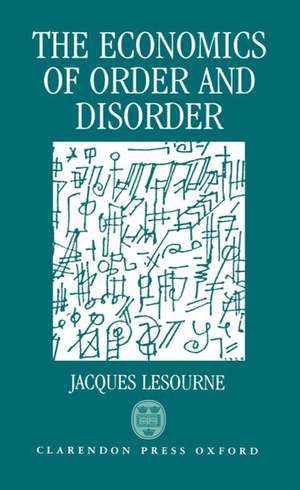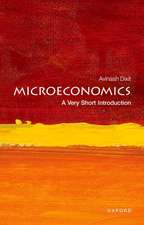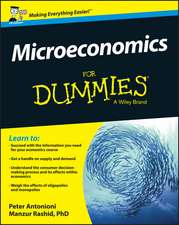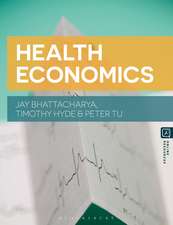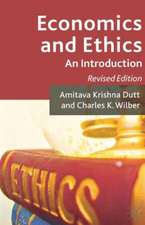The Economics of Order and Disorder: The Market as Organizer and Creator
Autor Jacques Lesourneen Limba Engleză Hardback – 19 mar 1992
Preț: 526.06 lei
Preț vechi: 796.98 lei
-34% Nou
Puncte Express: 789
Preț estimativ în valută:
100.66€ • 105.31$ • 83.62£
100.66€ • 105.31$ • 83.62£
Carte tipărită la comandă
Livrare economică 24-29 martie
Preluare comenzi: 021 569.72.76
Specificații
ISBN-13: 9780198287391
ISBN-10: 0198287399
Pagini: 224
Ilustrații: line drawings, tables
Dimensiuni: 143 x 223 x 18 mm
Greutate: 0.4 kg
Editura: Clarendon Press
Colecția Clarendon Press
Locul publicării:Oxford, United Kingdom
ISBN-10: 0198287399
Pagini: 224
Ilustrații: line drawings, tables
Dimensiuni: 143 x 223 x 18 mm
Greutate: 0.4 kg
Editura: Clarendon Press
Colecția Clarendon Press
Locul publicării:Oxford, United Kingdom
Recenzii
`The Economics of Order and Disorder is an enlightening book. It is full of original ideas about how to model the fundamentals of exchange; the discussions surrounding the models are highly insightful; and the book suggests many good directions for furhter work.'Journal of Economic Literature
'This book is highly recommended for those who want to remain at the frontiers of theoretical developments in economic theory. And it gives a taste of new directions in economic thinking that may become dominant in future.'P.M. Mathur, (deceased), University of Aberystwyth, Economics of Planning 27: 1994
'This book is highly recommended for those who want to remain at the frontiers of theoretical developments in economic theory. And it gives a taste of new directions in economic thinking that may become dominant in future.'P.M. Mathur, (deceased), University of Aberystwyth, Economics of Planning 27: 1994
